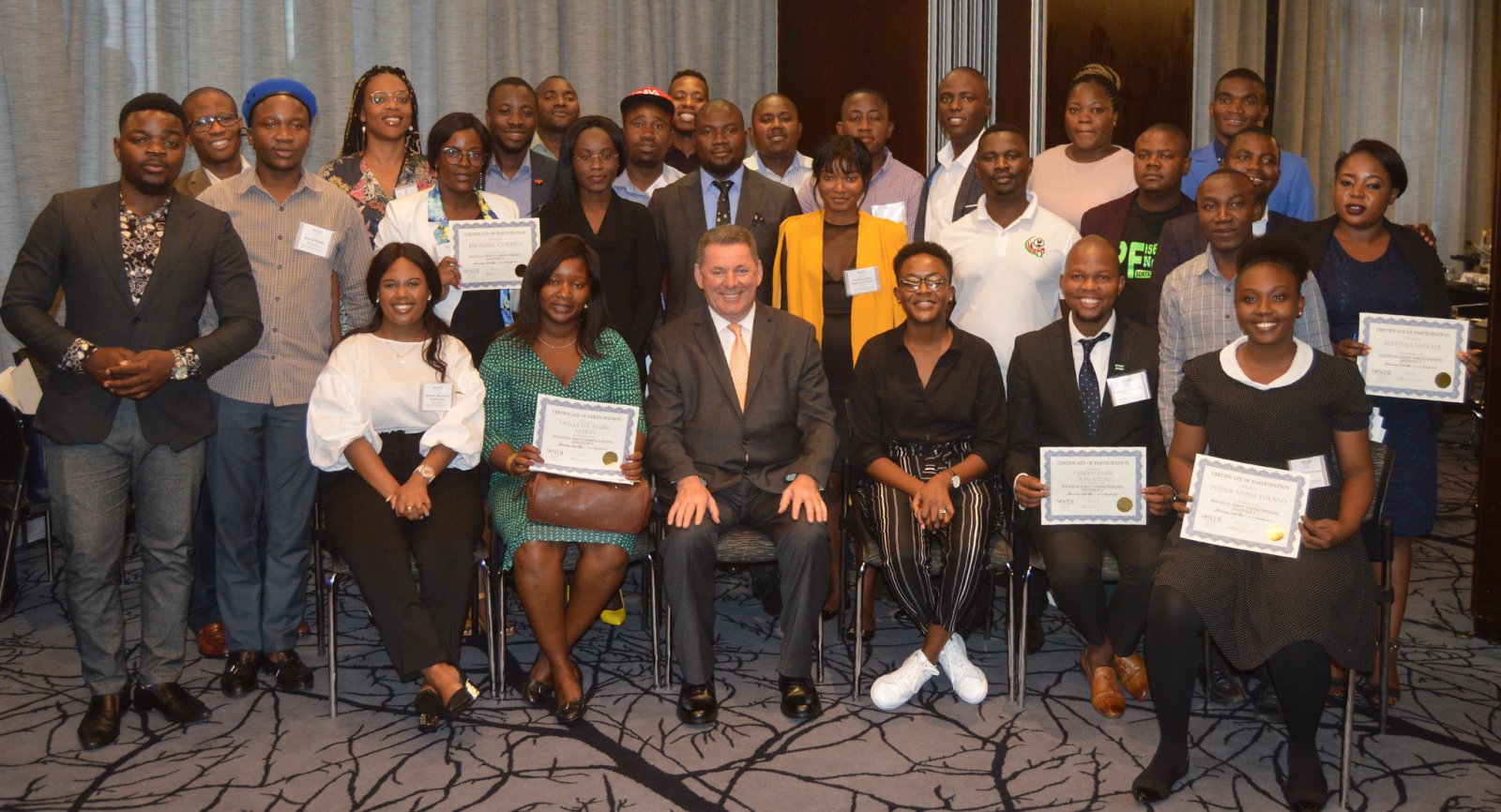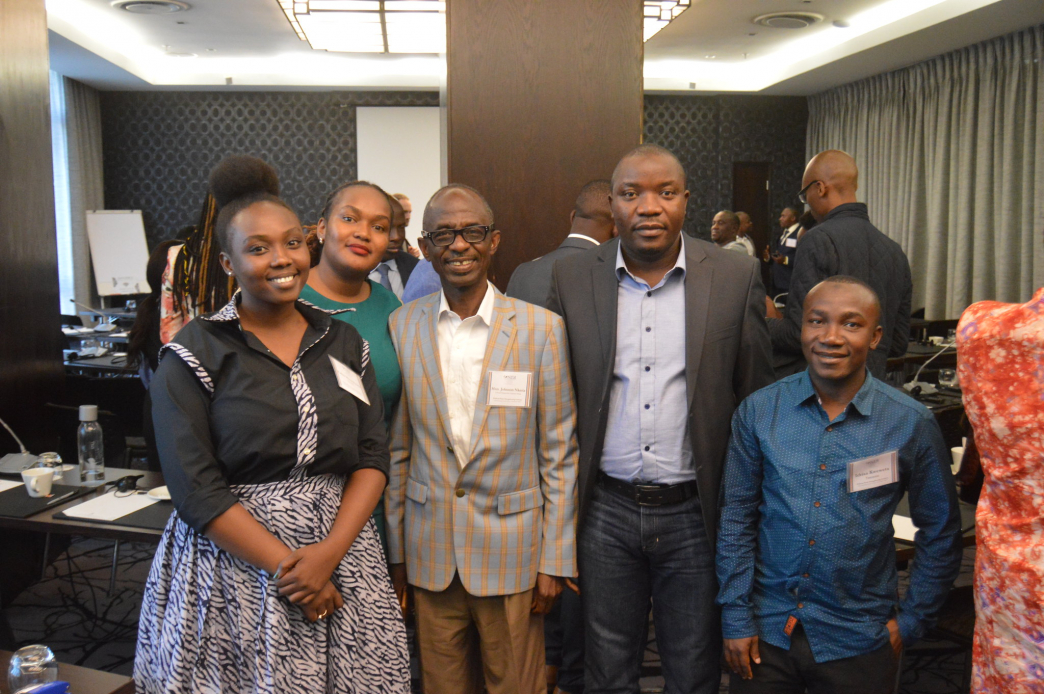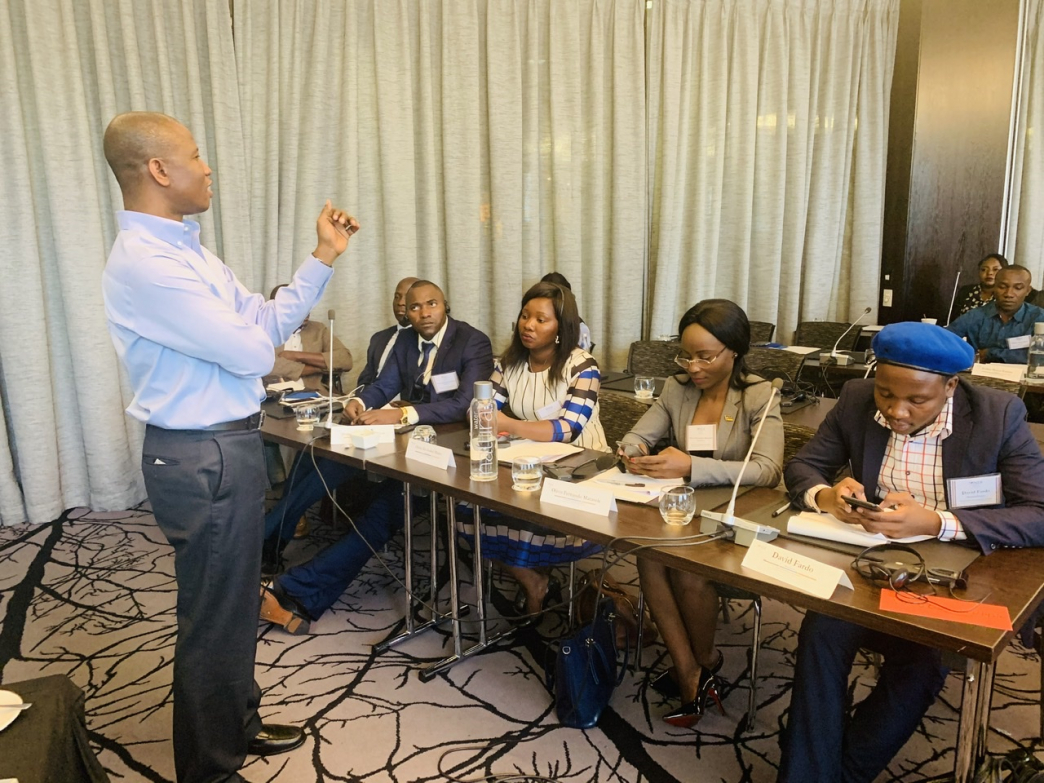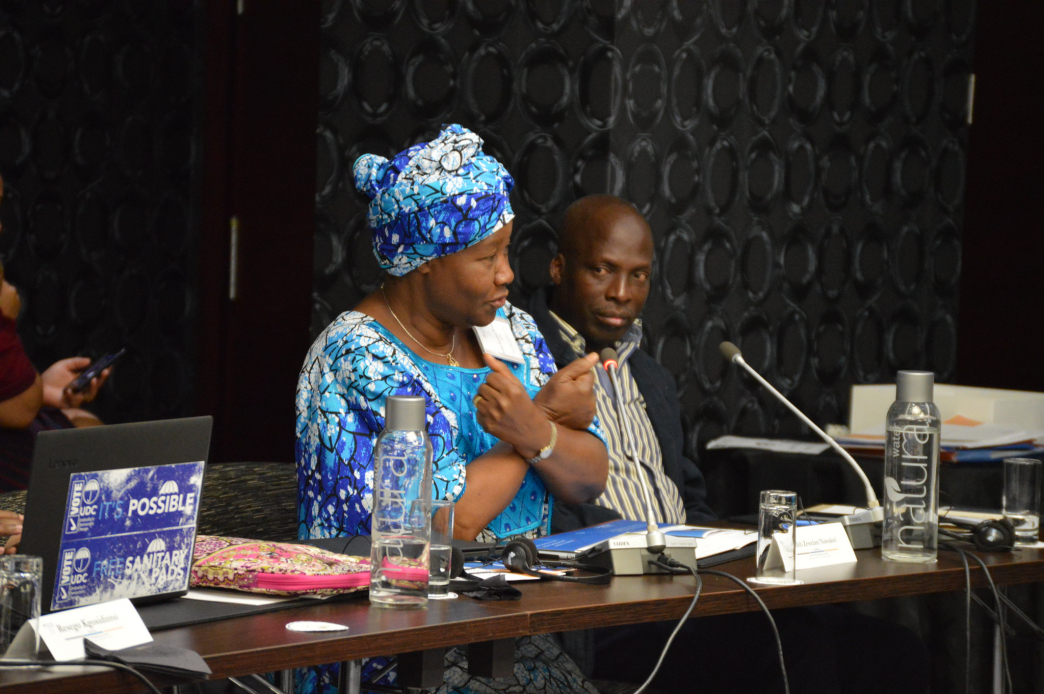
Youth political party leaders receive certificates of completion for NDI's Political Party Strengthening Institute.
SHARE
NDI’s Political Party Strengthening Institute (PPSI) was established in 2014 to bring together senior party leaders from across Southern Africa to foster greater inclusiveness, peer-to-peer learning and collaboration with the goal of enhancing engagement between political parties and constituents. Since its inception, NDI has successfully organized five institutes over its five year period with participation from the top-three vote earning political parties in Angola, Botswana, Malawi, Mozambique, South Africa, Tanzania and Zambia. Through the PPSI, senior party leaders have had the opportunity to share experiences with others and for the first time in the program directly engage with civil society representatives from countries in the Southern African Development Community (SADC), which is an integral component of the Institute.
49086034631_d6c32f4fc9_k.jpg

The final installment of NDI’s five-year PPSI program was held in Johannesburg, South Africa, in November. Party leaders, youth party leaders and activists from the SADC region convened for three days to not only focus on new emerging issues but also reflect on learnings and speak on their experiences initiating policies and reforms, building inclusive political parties, and promoting citizen engagement throughout the years of their participation in PPSI.
Since its inception, PPSI has traditionally targeted senior leadership within political parties, however, over the years we have observed the challenges faced by parties’ to respond to and address growing youth disenchantment. To improve parties’ ability to address these challenges, this year’s PPSI emphasized youth inclusion and engagement. For a continent with a rapidly growing youth population, which is expected to reach over 840 million by 2050, it is imperative that their voices be heard. Democratic progress must include youth political participation, which includes real opportunities to participate in the political process and contribute to practical solutions that advance development. Building the capacity of youth party members for leadership and inclusion in formal political party processes is important if the gains of multi-party systems are to be sustained in the region. This is even more imperative in the context of authoritarian influences increasingly lending themselves as democratic alternatives to countries in the region, explained Bodunrin Adebo, Program Director for NDI.
PPSI Day 2 Youth and Older Dialogue.jpeg

To ensure this year’s PPSI responded to the needs of both groups, NDI developed two separate tracks: one for youth leaders and the other for senior party leaders. Sessions with senior party leaders included individualized consultations and presentations on incentivizing youth inclusion in political parties, and understanding new politics, mentoring, citizen engagement, disinformation and strategic communications. Youth party and civil society leaders also participated in similar sessions but additional sessions focused on personal branding and building support from and within parties to respond to the specific challenges they face. Commenting on the role of youth leaders, participant Anna Mata from Zambia said, “As young people we need to be tactful and be able to understand and know strategies that we can use to be able to reach out to as we advocate and how we want to be included in these (political) spaces. We need to know how to use our negotiating skills and that there are certain compromises we need to make but at the end of the day, we need to ensure that we achieve what we want to achieve.”
Although each group had separate customized tracks, this year’s PPSI also provided opportunities for collaboration and dialogue between both groups. Youth political party leaders and civil society members participated in joint sessions with senior political party leaders to discuss ways they can work together better within parties, learn from each other, and strengthen the structures of their political party institutions to achieve the common goals of their respective parties. In this session, both groups candidly shared their experiences and challenges and charted realistic means to closing the gap between both groups. “In this era where everything is happening so rapidly, youth should step outside of their comfort zone and actually take action into things that matter,” said Nadine Lavrado, youth leader from Angola.
Edith Zewelani Nawakwi senior party leader from Zambia.jpg

For Luyolo Mpithi, Youth Leader and Member of Parliament in South Africa, his biggest takeaway was the session on the Digital Revolution. “It is something we need to really start getting more engaged on. South Africa is at a point right now where we are introducing data analytics in schools and we are looking at the economy and how we can move it forward into the digital world,” said Mpithi.
As NDI’s PPSI program comes to an end, participants leave with many lessons learned, new ideas to spur inclusive citizen participation, and new relationships formed for peer-to-peer learning between political party leaders and youth activists across Southern Africa.


